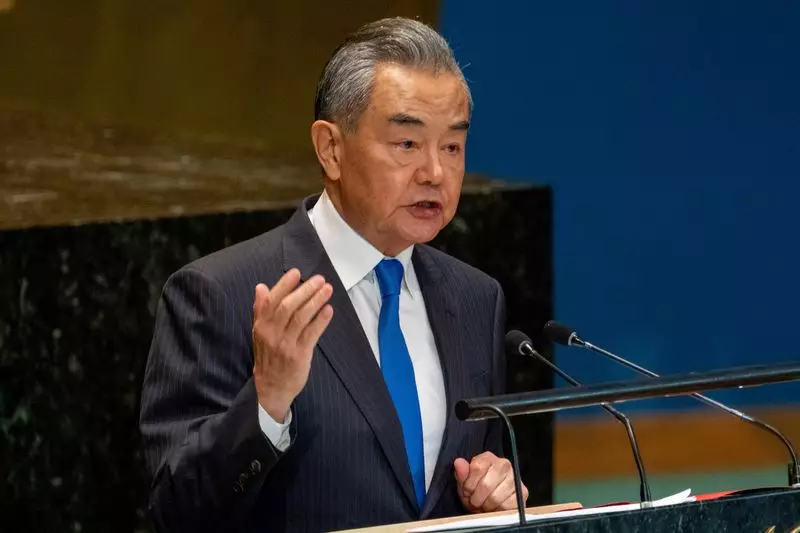China’s annual New Year diplomatic journey to Africa exemplifies a consistent and strategic approach to international relations that spans over 35 years. This tradition reflects not only the depth of China’s commitment to the continent but also serves as a counter-narrative to the diminishing presence of Western powers, particularly as they become preoccupied with domestic issues and military engagements elsewhere. The recent visit of Foreign Minister Wang Yi, which covered nations such as Namibia, Chad, and Nigeria, stands testament to China’s enduring focus on Africa—a focus that is increasingly vital in the contemporary geopolitical landscape.
While nations like the United States grapple with the implications of political transitions and European powers prioritize their commitments in Ukraine and the Middle East, China’s engagement remains steadfast. Analysts point out that this diplomatic tour is not an arbitrary selection of visits, but rather a calculated move aimed at reinforcing ties and demonstrating reliability. The resonance of this approach, according to observers, underscores a stark contrast to the inconsistent tactics employed by the U.S. and European nations that have failed to foster the same level of continual engagement.
As China’s economy faces significant slowing, Africa emerges as an essential partner, providing not only resources but also opportunities for significant market expansion. With state-owned enterprises in search of viable projects amidst local government debt struggles, African nations offer a critical avenue for economic rejuvenation. The relationship benefits both sides: Africa seeks investment and infrastructural development, while China aims to find new markets for its surplus products, such as electric vehicles and solar panels. This mutual dependency takes on greater importance as Beijing seeks to enhance its financial support for the continent—a lifeline for several nations grappling with crippling debt loads.
Moreover, the African continent’s substantial representation at international bodies like the United Nations positions it as a pivotal player in global politics. By fostering strong ties with African nations, China not only bolsters its influence but also seeks to reshape multilateral frameworks and norms to align with its strategic interests.
Wang Yi’s itinerary reflects an acute awareness of pressing regional security challenges, particularly the growing threat of extremism in Central Africa. The visit to Chad, coinciding with France’s withdrawal from military involvement in the country, highlights China’s burgeoning role in regional security dynamics. The shift in interests suggests an opportunity for China to step in and potentially fill the void left by traditional Western allies. This move could solidify China’s foothold in the region as it aims to take a more significant role in combating security issues which have long been the concern of Western powers.
Furthermore, China’s commitment to enhancing security cooperation is paralleled by its diplomatic efforts at the Forum on China-Africa Cooperation (FOCAC), where strategic agendas for future collaboration are set. The Republic of Congo’s leadership role in this forum not only reinforces China’s investment in Africa but also highlights the country’s commitment to following through on promises made during last year’s summit—most notably the significant financial assistance pledged by China.
The recent engagements in Africa not only reveal a strategic pivot towards cooperation in economic and developmental spheres but also signal a long-term vision for Sino-African relations. The emphasis on shared growth, infrastructural investments, and educational collaborations serves to further entwine the two regions. African leaders have begun to view China as a central actor in shaping their developmental trajectories, with discussions around enhancing manufacturing capabilities indicating a forward-thinking partnership model.
This evolving dynamic suggests that as the world grapples with the fallout from shifting geopolitical landscapes, China is positioning itself not merely as a partner but as a source of inspiration and guidance for African nations. The expectation that candidates for leadership within the African Union Commission will endorse China’s contributions to the continent is a testament to the deepening trust and reliance on Chinese expertise.
China’s diplomatic tradition in Africa is more than just an annual event; it marks a critical engagement strategy aimed at reinforcing its influence while providing tangible support for Africa’s development needs amidst a changing global order. As China continues to prioritize this relationship, it is likely to reshape the future of both its own economic landscape and that of the resource-rich continent.

